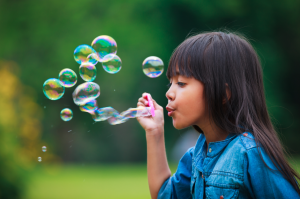Thousands of kids experience the stress of divorce each year. How they’ll react depends on their age, personality, and the particular circumstances of the separation and divorce process.
Every divorce will have an effect on the kids involved — and many times the initial reaction is one of shock, sadness, frustration, anger, or worry. But kids can also come out of it better able to cope with stress, and many become more flexible, tolerant young adults.
The most important things that both parents can do to help kids through this difficult time are:
- Keep visible conflict, heated discussions, and legal talk away from the kids.
- Minimize the disruptions to kids’ daily routines.
- Confine negativity and blame about each other to private therapy sessions or conversations with friends outside the home.
- Keep each parent involved in the kids’ lives.
Most adults going through separation and divorce need support — from friends, professionals, clergy, and family. Don’t seek support from your kids, even if they seem to want you to.
Breaking the News
As soon as you’re certain of your plans, talk to your kids about your decision to live apart. Although there’s no easy way to break the news, if possible have both parents present for this conversation. It’s important to try to leave feelings of anger, guilt, or blame out of it. Practice how you’re going to manage telling your kids so you don’t become upset or angry during the talk.
Although the discussion about divorce should be tailored to a child’s age, maturity, and temperament, be sure to convey one basic message: What happened is between mom and dad and is not the kids’ fault. Most kids will feel they are to blame even after parents have said that they are not. So it’s vital for parents to keep providing this reassurance.
Tell your kids that sometimes adults change the way they love each other or can’t agree on things and so they have to live apart. But remind them that kids and parents are tied together for life, by birth or adoption. Parents and kids often don’t agree on things, but that is part of the circle of life — parents and kids don’t stop loving each other or get divorced from each other.
Give kids enough information to prepare them for the upcoming changes in their lives. Try to answer their questions as truthfully as possible. Remember that kids don’t need to know all the reasons behind a divorce (especially if it involves blaming the other parent). It’s enough for them just to understand what will change in their daily routine, and — just as important — what will not.
With younger kids, it’s best to keep it simple. You might say something like: “Mom and dad are going to live in different houses so they don’t fight so much, but we both love you very much.”
Older kids and teens may be more in tune with what parents have been going through, and may have more questions based on what they’ve overheard and picked up on from conversations and fights.
Handling Kids’ Reactions
Tell kids who are upset about the news that you recognize and care about their feelings and reassure them that all of their upset feelings are perfectly OK and understandable. You might say: “I know this is very upsetting for you. Can we try to think of something that would make you feel better?” or “We both love you and are sorry that we have to live apart.”
Not all kids react right away. Let yours know that’s OK too, and there will be other times to talk when they’re ready. Some kids try to please their parents by acting as if everything is fine, or try to avoid any difficult feelings by denying that they feel any anger or sadness at the news. Sometimes stress comes out in other ways — at school, or with friends, or in changes to their appetite, behavior or sleep patterns.
Whether your kids express fear, worry, or relief about your separation and divorce, they’ll want to know how their own day-to-day lives might change.
Read more on Kidshealth.org

